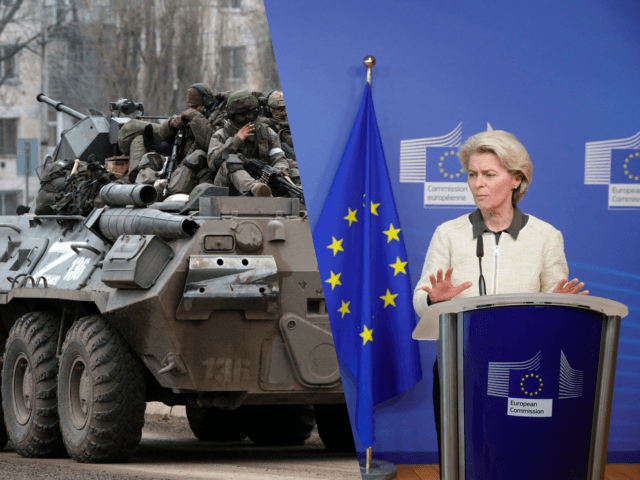Despite tough talk over Russia’s invasion of Ukraine, the European Union is squabbling internally over whether to include luxury goods and diamonds in sanctions, while there is reluctance on all sides to restrict energy imports.
While the 27-member bloc had been sounding off about severe consequences for the Vladimir Putin-led Russian Federation if it carried out a military offensive against its neighbour, it evidently failed to agree a common line on sanctions over the last several months.
Joe Barnes, Brussels correspondent for The Telegraph, claims that Italy’s Prime Minister Mario Draghi has secured a carve-out for luxury goods — presumably thinking of the lost profits if brands such as Armani and Prada could no longer sell designer shoes and handbags to wealthy Russians.
“Apparently selling Gucci loafers to oligarchs is more of a priority than hitting back at Putin,” one EU diplomat is said to have remarked.
Italy has also been “resistant to sanctions that include railways” and Belgium, for its part, is reported to have fought successfully for a luxury goods-style carve-out of its own for the diamond trade.
While such squabbles are perceived by some as exemplifying the European Union’s fundamentally unserious approach to the Ukraine crisis — despite Brussels having pushed hard to bring the country into an EU Association Agreement in the teeth of Russian opposition — the fact that Italy, Germany, and Austria were all “concerned [about] broad banking-sector sanctions” and there was “broad reluctance” to sanction the all-important energy sector, per Matina Stevis-Gridneff, Brussels bureau chief for The New York Times, is more serious.
On banking, for example, the British government has been pushing for Russia to be excluded from the SWIFT global interbank payments system — but European Union member-states led by Germany have been blocking the measure.
“When you pay Russia for its gas, it probably goes through the SWIFT system,” noted Britain’s Defence Secretary, Ben Wallace, alluding to the EU’s over-dependence on Russian gas.
“We want it switched off. Other countries do not. We only have so many options. We are going to work all day to try and get it [switched off for Russia],” Wallace added.
Joao Vale de Almeida, the EU’s ambassador to Britain, complained that people should not be “obsessed” over SWIFT and that the sanctions the EU is adopting will “have a huge impact ” on Russia, and Irish prime minister Micheal Martin also came out to bat for the bloc, suggesting that “People have different perspectives on the efficacy or value of SWIFT in itself” and that he did not “think we should singularly focus on it”.
The Ukrainian government evidently does not share this assessment, however, with defence minister Dmytro Kuleba stating in no uncertain terms that “Everyone who now doubts whether Russia should be banned from SWIFT has to understand that the blood of innocent Ukrainian men, women and children will be on their hands too.”
Action on Russian gas imports has also not been forthcoming, with Bloomberg noting that, in fact, “Russian gas flows to Europe [are rising] despite sanctions, with exports through Ukraine up almost 38 per cent on Thursday and expected to increase by another 24 per cent on Friday”.
Indeed, while the German government has suspended certification of the controversial Nord Stream 2 pipeline completed last September — a measure that will not prevent it from being opened at a later date, given the infrastructure is not actually being dismantled — the Prime Minister of Poland, Mateusz Morawiecki, has noted that Nord Stream 1 remains open, and his European Union partners have been unwilling to discuss shutting it down.

COMMENTS
Please let us know if you're having issues with commenting.